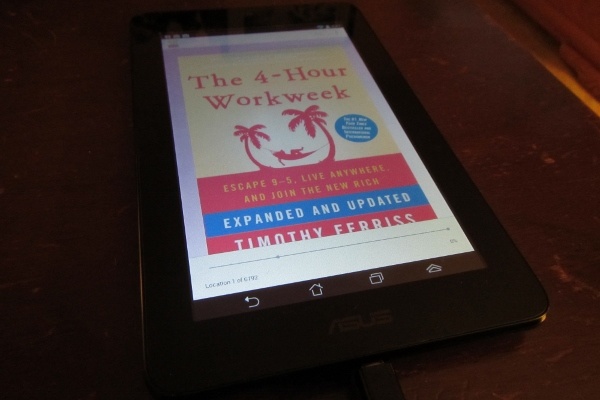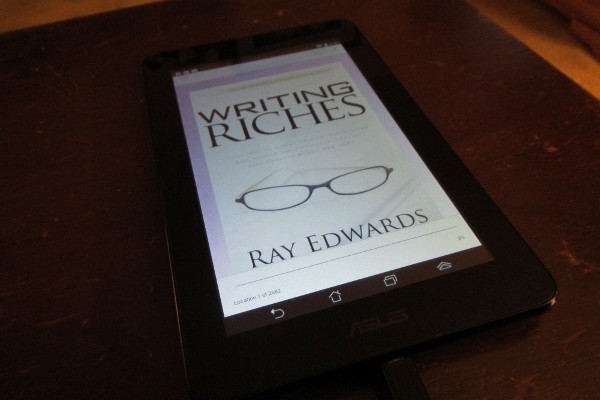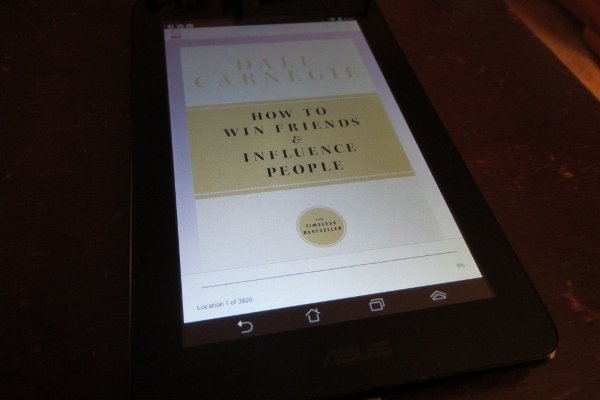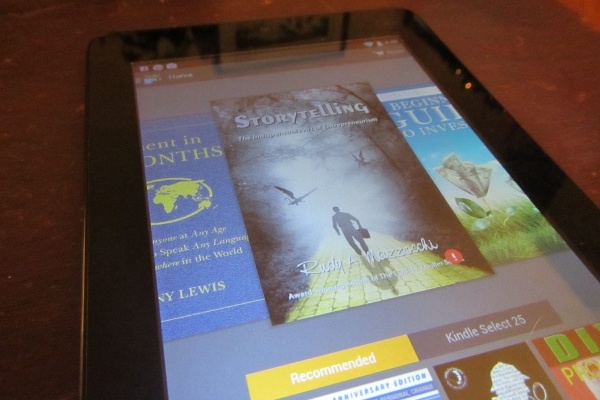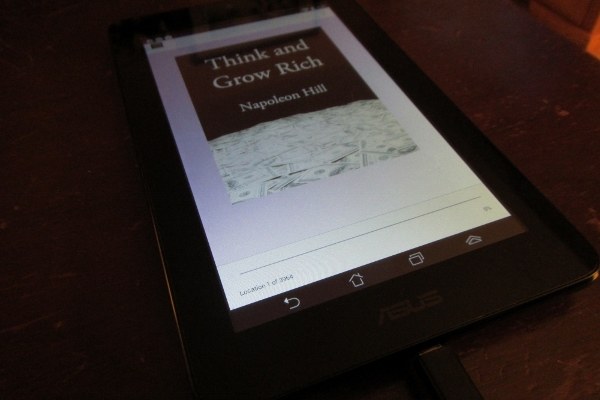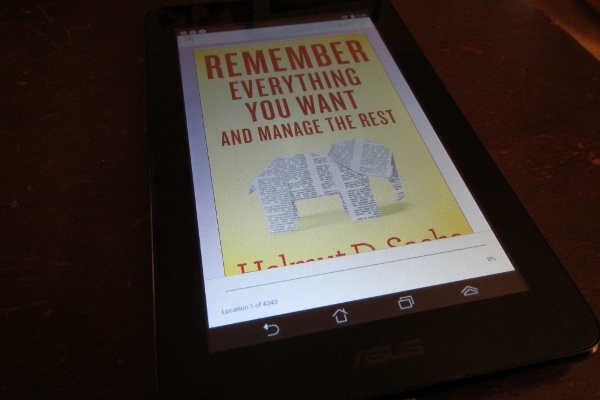Disclaimers: Our site uses demographic data, email opt-ins, display advertising, and affiliate links. Please check out our Terms and Conditions for more information.

With this abundance of time, we also made it a side goal of ours to read a lot of books. We hardly read at home, so our trip seemed like the perfect opportunity to change that. After reading through the complete Game of Thrones series, the entire tome of Sherlock Holmes, The Millennium Trilogy (which is amazing, by the way), and several other popular works we missed, I had to take a step back and ask myself if I was using my time wisely.
As you can imagine, I realized I wasn't.
At this point I decided to start reading what were considered to be the best marketing books to improve my knowledge of different fields that I would end up using later on. Several of the books I bought were crap. Others were quite good.
Overall, I came up with a list of six books that I can highly recommend for the entrepreneurs in our audience.
The Best Marketing Books for Lifestyle Design
The following is a selection of our favorite books covering topics like lifestyle design, business building, marketing, and more that you may find useful in your quest to build your perfect lifestyle-funding business.
Writing Riches: Learn How to Boost Profits, Drive Sales and Master Your Financial Destiny With Results-Based Web Copy by Ray Edwards
Writing Riches is, as the title suggests, all about writing good web copy, which is any content you put up in order to sell your product / idea / service.
This book will tell you several ways to deliver your writing in order to encourage your followers to buy your products, be it through sales, quantity restrictions, etc. but lacks in a very obvious point: it tip-toes around the idea of what “good copy” is.
If you want a book that will tell you the secret to a story or article that will help make a sale, this one is not it (perhaps go with Storytelling, talked about a few titles below here). But if you already have that idea and can put it out there with some degree of quality (and to quantify this, we'd place the bar at those who already have driven decent sales to products but want more), this book goes into the details on how to organize that pitch in a way that converts.
How to Win Friends and Influence People by Dale Carnegie
How to Win Friends and Influence People is a classic.
This book covers four key principles that pretty much any person dealing with others will need on a continual basis. They are:
- Basic Handling of People
- Making People Like You
- Getting People On Board With an Idea
- Changing People Without Being Offensive
A lot of the topics covered in this book are psychological. Tips like getting someone to say, “yes” in agreement to an unrelated topic before presenting a proposition scream out common sense (you do want people thinking positively before asking them to do something, right?), while at the same time making you think, “why did I never think of that before?”
If you think you'll end up interacting with others through your business and need a bit of help on that front, this one is a great starting point.
The 4-Hour Workweek by Timothy Ferriss
Question: Can you build a business that allows you to only have a 4-Hour Workweek?
Answer: Probably not.
The main takeaway I had from The 4-Hour Workweek was not about building a business that runs itself with only four hours of my time each week. Instead, my main takeaway from the book was to put a value on my time and reap the benefits of that accordingly. Not surprisingly, this idea pops up in many of the books featured in this article.
A common theme presented in this book is if you aren't earning money from a task, don't do it. If you need to get it done (like replying to emails) but you can earn money on other assignments, pay someone cheaper than you to do it. It is a harsh theory to get around, but it does make sense. Why spend 10 hours doing the tedious work when someone on the other side of the world can do it for you for a fraction of what you'd charge and probably be better at it, too? This allows you to spend those 10 hours working on higher earning projects and increase your $-to-hour rate accordingly by cutting out the tedious work.
Where is there a problem with that logic? If you do not have a business that is bringing in income already, you may not find much value in the book. I found that the biggest pros in this book were for people who were already earning money and want to free up their time, rather than those who are not earning money and are figuring out their way to do so.
For beginners earning no income and a “4-Hour Workweek” as your goal, we recommend starting elsewhere before reading this one. You may not even need it by the time you start making money, either.
Storytelling: The Indispensable Art of Entrepreneurism by Rudy A. Mazzocchi
Storytelling takes a basic approach to many of the topics presented in Writing Riches (mentioned above). This book covers an array of topics all about the art of delivering your story in order to convert sales.
What I liked about this book was that it focuses on many situations where you may need to tell your story which are used as cues for you to refine your pitch. But, as with most books featured in this round-up, you must take a pro-active approach to improving your story. There is nothing included in the book that will instantly make you better, but there is plenty that will help you improve with practice and several iterations of focused work.
My guess is if you are an entrepreneur looking to build a business, this notion doesn't turn you off. If it does, well, you've got bigger problems than being able to tell your story in order to make a sale.
Think and Grow Rich by Napoleon Hill
There is something special about books written ages ago that are able to remain relevant decades later. The few featured on this list that fall into that category are amongst my favorites. Think and Grow Rich is one of those books.
Napoleon Hill interviewed hundreds of the most successful businessmen of his day in order to uncover the secrets presented in his book. As the name suggests, many of the best topics covered in this book are about the mental hurdles you need to cross in order to achieve your goals. I appreciated the narrative presented in this one as it gives a clear-cut way to define your business (money, then business) which was completely opposite of how I was thinking (business, then money). After adjusting my thinking to Napoleon's stance, I found myself with a sudden clarity that helped shape my business plans moving forward. Not bad how cheap it is!
I'll admit that the writing is a little dull due to the style of the time, and the second half of the book goes into some mundane topics that are comical in this day, but the overall premise is sound.
Remember Everything You Want and Manage the Rest by Helmut Sachs
I'm not going to lie, there is a part of me that wishes I had an eidetic memory. Life would be so much easier if I could recall all of the knowledge I ever read just like that. Unfortunately, I do not think it is possible to train yourself to be that skilled as natural talent does seem to come into play at some point.
But for those who want to improve your capacity for memorizing facts, names, ideas, or other concepts, Remember Everything You Want and Manage the Rest is a good start.
I like this book because it presents simple techniques you can use to improve your memorization capabilities with ease. I do not like this book because most of those skills require continual practice to the point that they become second nature before you “master” them. Okay, this is my fault because I'm lazy, and I don't really have the time to put into the techniques to master them.
Unfortunately, there is no book out there that will magically give you a better memory right after reading it. But if you are willing to devote time to practice, this one is quite good. Even after a few days of practicing a couple techniques that interested me, I observed a notable improvement. But continual work is needed with this type of learning if you truly want to become a master.
The Problem With Business Books
After reading the above books (plus many more poorly written ones), I noticed a common theme: the authors like to talk about themselves, a lot.
The problem with many motivational books is that authors are unable to remove themselves from the picture in order to convey their message. There are many instances in all of the above books where the authors get so caught up in talking about themselves, other business leaders, and irrelevant details that it sometimes becomes infuriating to continue reading.
Where this becomes an issue is that some authors will say “I did this and had success” but will not say the who, what, where, when, how, or why behind the choices that brought that success. In fact, this is the reason we're going to share everything in our lifestyle design series because it seems like no one else ever does. This is also the reason we recommended The 4-Hour Workweek with some hesitation and didn't even mention The $100 Start-Up (even though out of the two, I think I liked that one more). Both are good reads, but I finished them feeling inspired rather than feeling like I received actionable advice.
If you're like me, you're probably already inspired and need help on taking that inspiration to the next step.
So if you are considering buying one of the above books because you are wanting to run a business identically to the person who wrote the book and want the secrets of how his business operates, stop right there. It probably won't help you very much. But if you are looking for new inspiration, general ideas, actionable advice, or to achieve clarity in the direction of your own work, and can figure out most of the dirty details for your specific business venture yourself, these books are most certainly worth owning and reading several times over.
Do you have any of the books featured within this article in your collection? Comment below to let us know what you thought about it!

